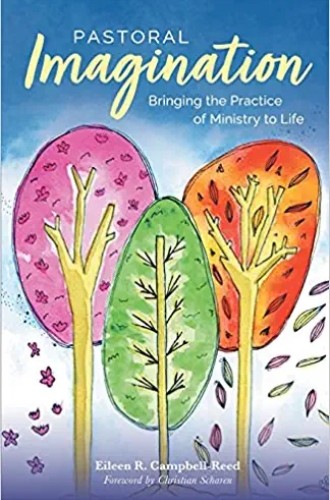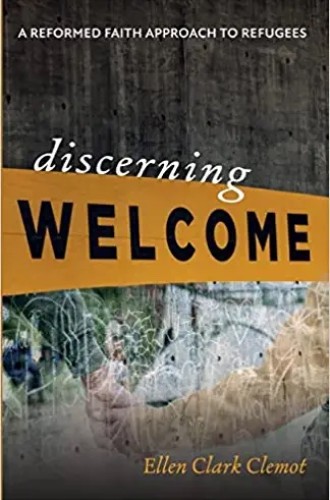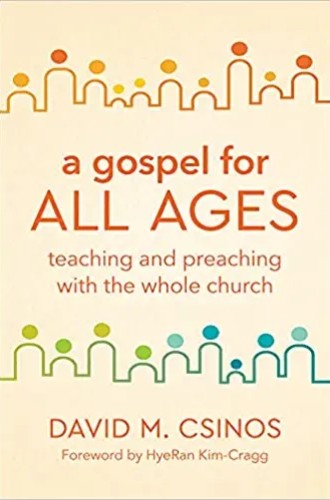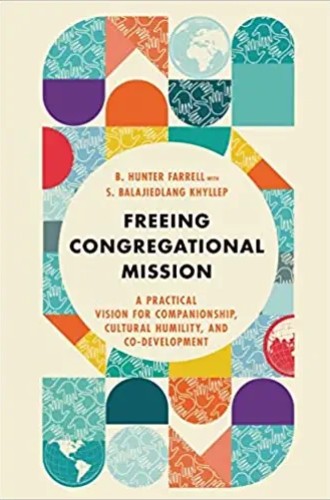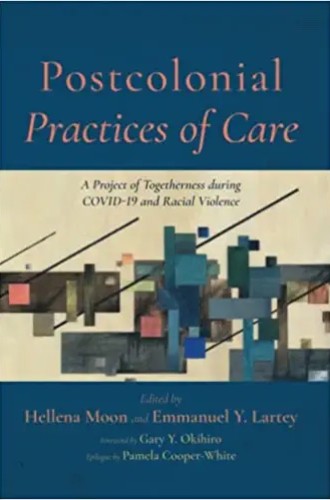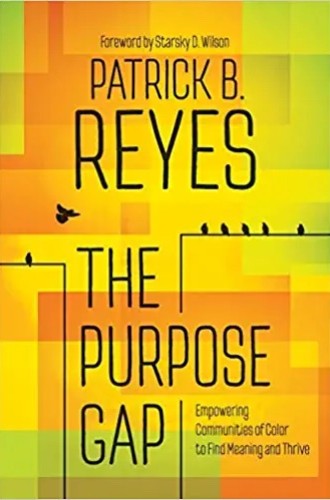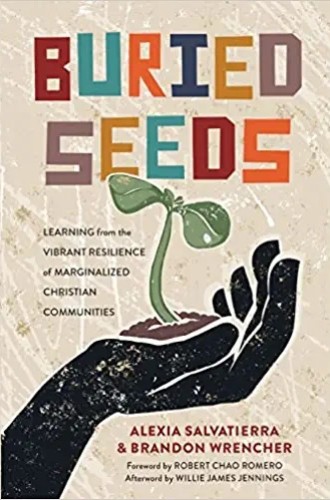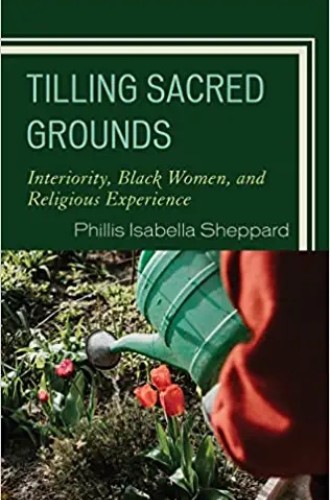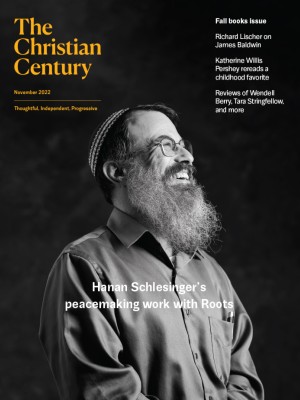Take & Read: New titles in practical theology
By Eileen R. Campbell-Reed
Fortress
Pastoral imagination, writes Eileen Campbell-Reed, is the ability to lead with “situated possibility,” to improvise on a daily basis while envisioning what might lie beyond current realities. This book demonstrates the urgent need for the power of imagination when ideas are deeply entrenched and resistance prevails. Based on a longitudinal study of pastoral leaders from several denominations, this volume is organized around 50 ministry topics, such as collaboration, brick walls, mentoring, and navigating conflict. Campbell-Reed draws on her understanding of ministry not only as a set of skills or an identity but as a spiritual practice in which one experiences the holy. New and seasoned leaders will learn how pastoral imagination resurrects a hopeful perspective on the practice of ministry.
Discerning Welcome: A Reformed Faith Approach to Refugees
By Ellen Clark Clemot
Cascade
Congregations seeking to provide hospitality and live out the commandment of neighbor love will find a valuable resource in this volume, which focuses on immigrants seeking asylum from genocide, war, or religious persecution. The book begins with a compelling story of a man who was arrested and imprisoned after registering with US Immigration and Customs Enforcement with hope of receiving asylum (see “Injustice gets personal,” Aug. 1, 2018). Clemot engages the Reformed tradition to articulate ethical obligations to refugees, discuss the moral issue of border walls, and assess the political lives of faith communities. This work is even-toned, thoughtful, and practical in laying out what churches and congregants can do to aid refugees.
Read our latest issue or browse back issues.
A Gospel for All Ages: Teaching and Preaching with the Whole Church
By David M. Csinos
Fortress
Age segregation is deeply embedded in many churches, especially in the West. This book demonstrates how present circumstances call for bringing generations together in Christian faith communities. Intergenerational ministry is not a gimmick to attract young families. Rooted in biblical notions of koinonia, authentic intergenerational ministry is characterized by mutuality, equality, and reciprocity. Csinos utilizes developmental theory, especially that of Lev Vygotsky, to build his rationale. If one of the goals of preaching is to empower transformation, preachers must be open to their own makeover. This includes giving up the illusion of control over what happens during the sermon. While not a how-to book, this volume suggests ways to practice intergenerational ministry through interpreting, speaking, and experiencing the gospel together.
Freeing Congregational Mission: A Practical Vision for Companionship, Cultural Humility and
Co-development
By B. Hunter Farrell, with S. Balajiedlang Khyllep
IVP Academic
B. Hunter Farrell and S. Balajiedlang Khyllep outline a conundrum: mission is a top priority of the church, but mission has benefited the church more than anyone else. Cultural tones of narcissism have thrown us off course. Rather than joining in with what God is doing in the world, we focus on Band-Aiding the world’s problems. Farrell, a missionary who has served in Africa and Latin America, acknowledges that mission work planted churches on five continents and created much of the vibrant Christianity in the Global South, but the authors also address the colonial underside of mission history. They propose three ways out of the conundrum: a theology of companionship, an invitation to cultural humility, and the power of co-development.
Postcolonial Practices of Care: A Project of Togetherness during COVID-19 and Racial Violence
Edited by Hellena Moon and Emmanuel Y. Lartey
Pickwick Publications
Prepare to be intellectually and spiritually stimulated by this cohesive anthology of conversations about liberation and pastoral practices. Aiming to detach pastoral care from hegemonic epistemologies, the contributors interrogate binaries (such as sacred/secular, pastoral/spiritual, and abled/disabled), challenge monocultural ethnocentrism, and examine religion as a tool of the colonialism and ultranationalism that drive Western cultural superiority. This work lifts up the ideas of W. E. B. Du Bois, Frantz Fanon, and soul processing (an African pastoral care practice) to restore well-being in people hindered by oppressive structures. Practices of ritual and protest converge to form a reconstituted understanding of caregiving that emphasizes human togetherness in relationship to all the earth.
The Purpose Gap: Empowering Communities of Color to Find
Meaning and Thrive
By Patrick B. Reyes
Westminster John Knox
Theologian Patrick Reyes defines “the purpose gap” as the divide that separates people of color from the opportunities they need to succeed and thrive. Those born on the side of opportunity inherit a world built to sustain the gap. Those born on the other side face an insurmountable chasm. Some find a bridge across the gap, but people on the other side try to thwart them because they see them as a threat. The purpose gap is an external, historical reality, and Reyes proposes shrinking it by redesigning the conditions that created it. He stresses that the church has a vocation to help close the gap. Instead of lifting up the few who cross the gap, we should be building up entire communities. This book deserves all the attention it is receiving.
Buried Seeds: Learning from the Vibrant Resilience of Marginalized Christian Communities
By Alexia Salvatierra and Brandon Wrencher
Baker Academic
Galilee was a marginalized community that launched a movement of global redemption. We might similarly expect powerful liberative forces to arise from communities in socioeconomic peril today. But young people are not looking to older White role models for a sense of belonging; they are seeking community with those who share their own history and cultural identities. Alexia Salvatierra and Brandon Wrencher lift up two Indigenous models that offer culturally rooted wisdom—the base ecclesial communities of the Global South and the hush harbors (secluded places where slaves met to worship and practice religious traditions of their ancestors) of the US antebellum South. The authors also describe thriving modern-day faith communities that utilize similar practices and principles. This volume will inspire and sustain resilient integral Christian communities that foster belonging and cultivate justice.
Tilling Sacred Grounds: Interiority, Black Women, and Religious Experience
By Phillis Isabella Sheppard
Lexington Books
Drawing on the work of Audre Lorde, womanist scholar Phillis Sheppard offers a compelling theological analysis of Black women’s interior lives and their contributions to public discourse. Shaped by conscious and unconscious forces, the interior life expresses itself in art, ritual, and spiritual teachings. Sheppard examines her subject through several sources, including visions of the self revealed in outsider art, an ethnography of Black women’s religious experience in cyberspace, and a case study on trauma and pastoral vocation. Although the writing is erudite and somewhat technical, all readers will encounter the sacred ground of Black women’s interiority and glimpse its power to bring about healing and wholeness.


